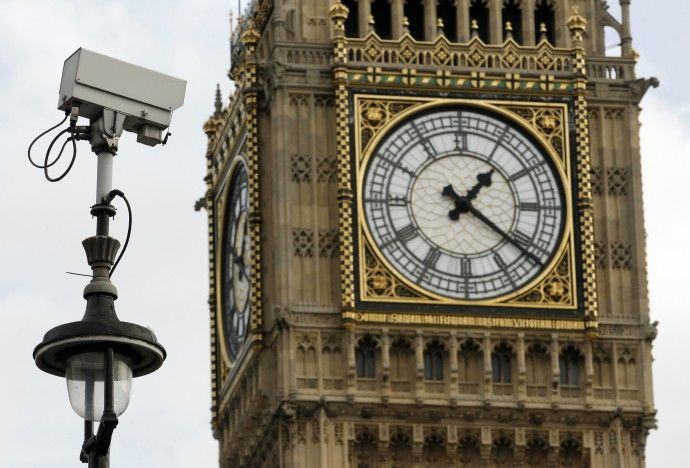A New Yorker's Opinion: Schumer's Right on Mall Tracking, But That's Just the Start of Global Surveillance

Senator Charles Schumer wants to protect you from being stalked at the mall. By tracking your movements via your cell-phone, that is.
The Senator has told the Wall Street Journal that, A shopper's personal cellphone should not be used by a third party as a tracking device by retailers who are seeking to determine holiday shopping patterns. Schumer, D-N.Y., argued that putting the opt-out burden in the hands of a consumer, who might not actually be aware of, or fully understand, the technology, is not enough. You can turn off your cell, but should you have to? Said Schumer, It shouldn't be up to the consumer to turn their cellphone off when they walk into the mall to ensure they aren't being virtually tailed.
This tech is just the latest in the stealthy area of software that's tracking us. Software is out there today that can use feeds from the cameras in place in many cities, especially London, to look out for crime and watch traffic--to do sophisticated facial recognition on passing strangers, then search the internet for publicly posted photos (all those college party shots that you thought you took off Facebook) and, thanks to Facebook's facial recognition capability, identify people. For law enforcement, of course, there is access to a vast array of their own databases. That software, once it's identified your face and got your name, can also find masses of personal, credit and other information--again all out there on the net.
At first, it seems that the mall-tracking stuff is fairly benign--and I suppose it is, just now. It's anonymous and doesn't snag your personal info, according to both Forest City and tech-developer Portsmouth, England-based Path Intelligence. It's been used without incident abroad and Forest City just tested it at two California malls on Black Friday. Since Schumer raised the alarm, however, Forest City has suspended the trails and awaits a better way for visitors to opt-out...and for the negative publicity to die down.
Even though all information gathered by the system is anonymous, some consumers may still wish not to participate, said company spokesman Jeff Linton. At present, the option for them to decline to participate is to turn off their mobile phones. ... We would like to pursue an easier opt-out option for consumers.
The point of concern, of course, is not just making it easier for mall operators to rearrange the location of stores to ease pedestrian traffic jams--that's a lofty, or at least, OK goal.
What is scary is that once all these various bits of software come together, we will live in a world of constant surveillance--and not just by Big Brother. This information-genie will get out of the bottle as surely as any other does, technology wants to spread and it will. All sorts of individuals and organizations will be able to keep track of us, some governmental and some...freelance.
How close are we? Already there, really. Consider this PC World piece that ran in Sept. 2011, concerning the subject. In that fine wrap-up of how close we've come to a Minority Report world, a few other bits of technology form a cluster of concern--and a harbinger of where we'll be in a decade or two. Consider these:
Massachusetts-based BI² Technologies has created handheld facial recognition software that works on an iPhone--available at present only to law enforcement agencies. Snap your face or do an iris scan and run it through linked databases and the nifty little program IDs you, just like that.
If you want to kick it up a notch, there's the work getting done at Georgia Tech Research Institute that mashes facial recognition with autonomous aerial drones. Load up your targets of choice, launch your drone and take the rest of the day off. Man, there have been times, I'm sure when we've all wanted one of those, right?
It's not all so...Terminator, though. I Chicago, there's SceneTap--which lets potential bar patrons to check the establishment's other patrons out before even getting there.
Okay, that last one isn't so bad. But having everybody know where I am, track me, stalk me, hunt me with drones? That's really not so very good.
© Copyright IBTimes 2025. All rights reserved.





















